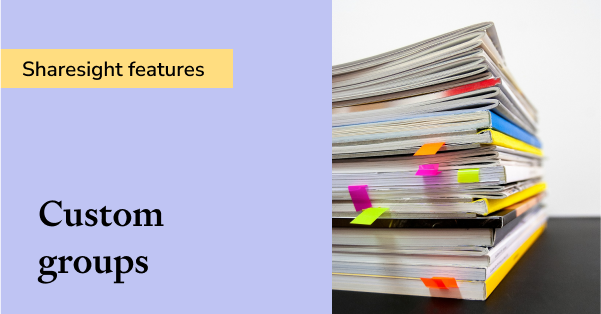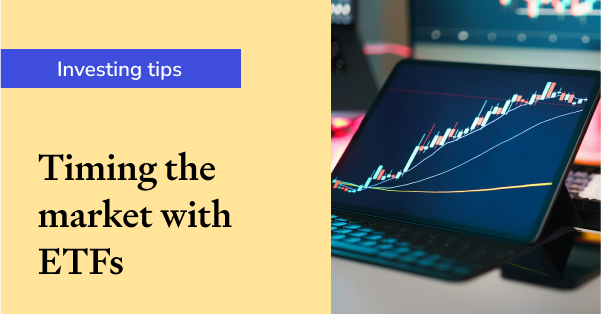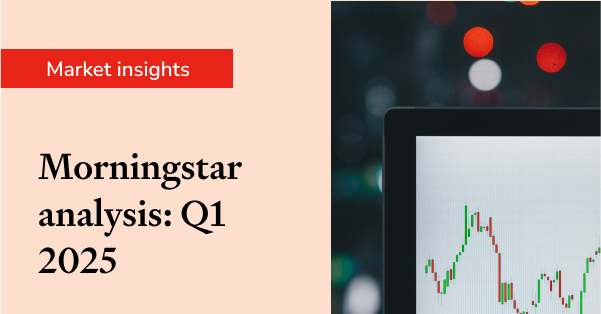Australian ETF distribution components now available for FY20/21
Sharesight now has updated ETF distribution component information for the FY20/21 Australian tax year for all Russell Investments, ETF Securities and Vanguard ETFs, as well as updated distribution data directly from Betashares and Van Eck, plus (most) iShares (BlackRock) ETFs.
This means that for the majority of ETFs in Australia, Sharesight users will not need to manually update their ETF distribution components using Sharesight’s pro-rata form to ensure the cost-base for these ETFs is correctly adjusted and recorded in their portfolio.
Investors need to keep accurate records of these cost-base adjustments on ETFs in their portfolios for tax purposes, as the cost-base factors into capital gains tax calculations should these ETFs be sold.
AMIT tax components for ETFs in Australia
ETFs (Exchange Traded Funds) are a type of unitised investment fund that can be bought and sold on stock exchanges such as the ASX, these funds often pay distribution income to shareholders throughout the financial year for any income earned by the fund.
Since 2016, Australian ETFs can be structured as Attribution Managed Investment Trusts (AMITs), this is an evolution of the Managed Investment Trust (MIT) structure that allows trustees to ‘attribute’ taxable income to unit holders, without the need to distribute that income immediately.
This means investors may need to record a cost base increase when the attributed taxable income exceeds the distribution paid to the unit holder during the financial year.
Sharesight’s ETF distribution data
Sharesight receives estimates of the gross distribution values from the ASX when they are announced, however AMIT components are only finalised when fund managers know the breakdown of income earned by the trusts, and then they make these values available to unit holders by issuing year-end AMMA tax statements.
This means that the distribution values Sharesight receives from the ASX throughout the year do not contain AMIT component breakdowns. Sharesight has worked directly with the registries and fund managers involved to collect raw data for the majority of these AMIT trusts, which we then use to calculate the component values for individual ETF holdings.
For ETFs where Sharesight has data, users will be able to accept these values if they have not yet confirmed the distribution payment. Where users have already confirmed the payment or used the pro-rata form and want to return to the original values, clicking ‘reset this payout’ when editing the distribution will revert the data to the updated values we’ve received - this will also reset any file attachments on the payout, so please ensure you save and re-attach these .
You can see how this process works in Sharesight by viewing the video below on how to confirm the ETF distribution components in Sharesight before running the Taxable Income Report to ensure the values match your AMMA statement.

Note: Because each ETF fund manager uses slightly different calculations to determine unit holders’ AMMA tax statement values, we highly recommend double-checking the values in Sharesight against your AMMA statement, as while we expect these to be correct in most situations, it’s possible a particular ETF/manager uses a different calculation to Sharesight.
If you have any questions about how to handle AMIT components in Sharesight, ask in our ETF tax components discussion in the Sharesight Community or message support when logged in to your account.
How AMIT cost base adjustments impact performance
Sharesight takes into account both AMIT cost base increase and decrease components when calculating investment performance. Here’s how it works in each scenario.
AMIT cost base decrease
When calculating performance, Sharesight adds the AMIT cost base decrease component to your gross dividend given that it represents cash received that was not attributed to you.
AMIT cost base increase
When calculating performance, Sharesight deducts the AMIT cost base increase from your gross dividend given that it reduces your attributed income to the net cash amount you actually received.
How to confirm Australian ETF tax components in Sharesight
Watch this video to learn how to confirm ETF tax components in Sharesight:
Embedded content: https://youtu.be/efAIvcZwDyI
Simply the best portfolio tracker for Australian investors
Join thousands of Australian investors already using Sharesight to manage their investment portfolios. With Sharesight you can:
-
Automatically track your dividend and distribution income from stocks, ETFs, LICs and Mutual/Managed Funds – including the value of franking credits
-
Use the Dividend Reinvestment Plan (DRPs/DRIPs) feature to track the impact of DRP transactions on your performance (and tax)
-
See the true picture of your investment performance, including the impact of brokerage fees, dividends, and capital gains with Sharesight’s annualised performance calculation methodology
-
Run powerful tax reports to calculate your dividend income with the Taxable Income Report
-
Plus calculate your CGT obligations with Sharesight’s Australian Capital Gains Tax Report and Unrealised Capital Gains Tax Report
To get started for FREE, simply sign-up, import your holdings and watch as dividends and prices are automatically updated. If you decide to upgrade, you’ll unlock advanced features and everything you need to run your tax reports and gain unparalleled insights into your portfolio performance throughout the year.

FURTHER READING

8 ways to use Sharesight's custom groups feature
This blog explains our custom groups feature, including strategies that can help you gain deeper portfolio insights and make more informed investing decisions.

You can time the market – and ETFs are the way to do it
Marcus Today founder and director Marcus Padley discusses timing the market, and how investors can do this using exchange-traded funds (ETFs).

Morningstar analyses Australian investors’ top trades: Q1 2025
Morningstar reviews the top 20 trades by Australian Sharesight users in Q1 2025, and reveals where their analysts see potential opportunities.